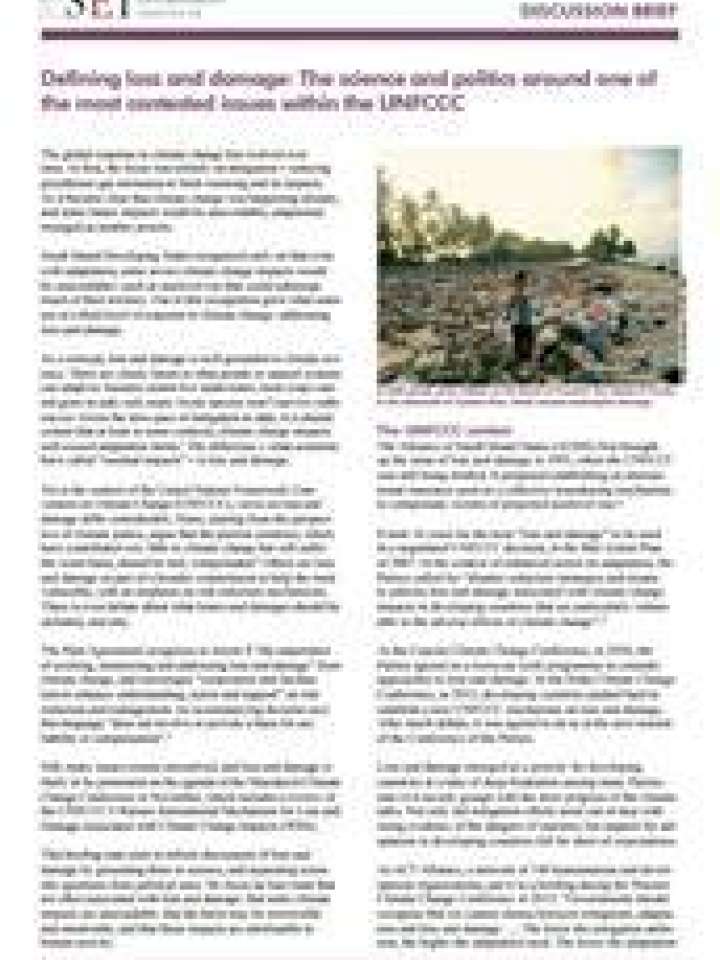Defining loss and damage: The science and politics around one of the most contested issues within the UNFCCC
This discussion brief examines four key traits associated with loss and damage in policy discussions: that some climate impacts are unavoidable, that the harm may be irreversible and intolerable, and that those impacts are attributable to human-driven climate change, and considers the relevant science as well as key political and value-based judgements involved.
As a concept, loss and damage is well grounded in climate science. There are clearly limits to what people or natural systems can adapt to. Yet in the context of the United Nations Framework Convention on Climate Change (UNFCCC), views on loss and damage differ considerably. The Paris Agreement recognizes “the importance of averting, minimizing and addressing loss and damage” from climate change, and encourages “cooperation and facilitation to enhance understanding, action and support” on risk reduction and management. Still, many issues remain unresolved. This briefing note aims to inform discussions of loss and damage by grounding them in science, and separating scientific questions from political ones.
Explore further
